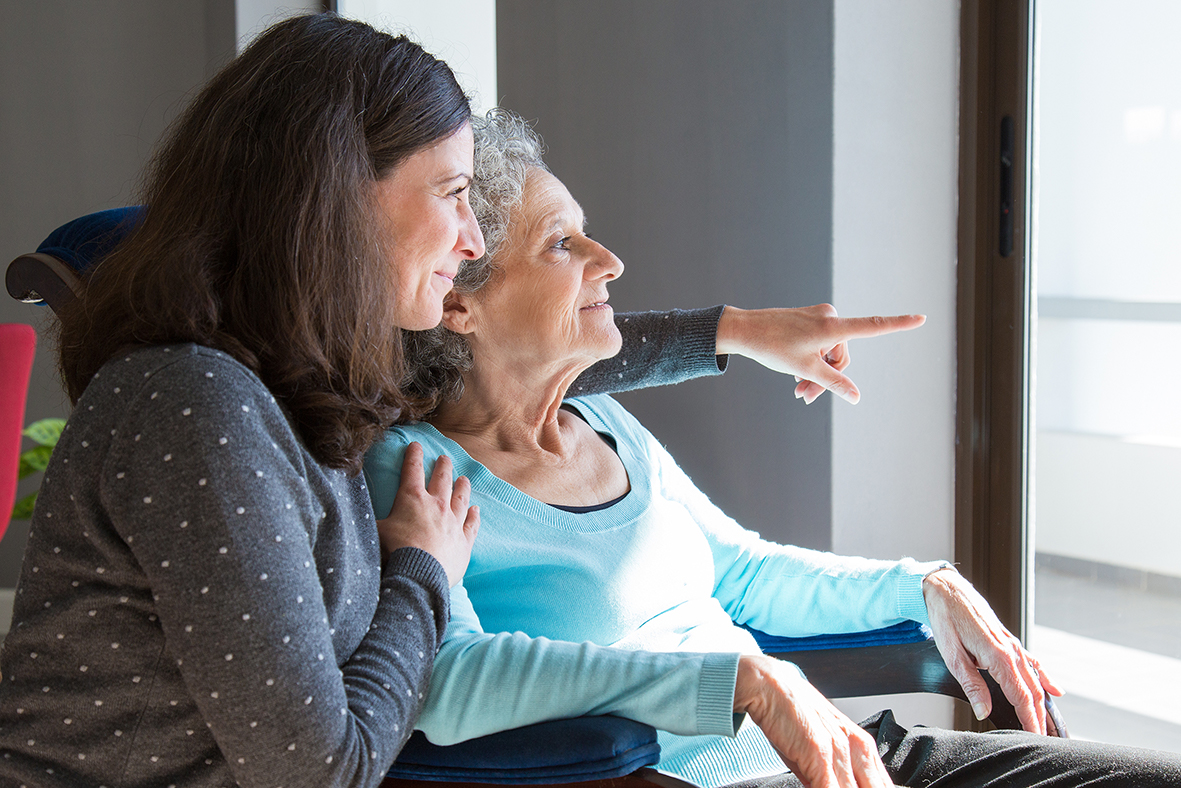
Written by Dr Priyanka Vandersman, Research Associate, Research Centre for Palliative Care, Death & Dying
Over 1.2 million older Australians receive aged care services either in their homes, or in residential aged care facilities (RACF). High prevalence of complex and chronic illnesses among older people often requires their family to take on some caregiving activities in the community, and in residential aged care setting. Almost 15% of South Australians provide care and support to their loved ones, and are often referred to as ‘family caregivers’. With the ageing national population, the proportion of Australians who assume the role of family caregivers is likely to further increase in the future.
Older people are known to carry disproportionately higher burden of chronic and life-limiting illnesses compared to their younger counterparts. This has led to increasing numbers of older people living and dying in residential aged care setting. Family caregivers of people living in RACFs, or those in the process of being placed in one, are highly likely to experience emotional ambivalence and deep sense of loss and grief. 1 In many instances, family caregivers are grieving while fulfilling their caring roles. While almost a third of deaths in Australia occur in residential aged care setting, many family/caregivers have very little experience or preparation in relation to death and dying; and minimal grief and bereavement support.
Grief is generally understood as a reaction to death. However, many family caregivers experience grief related to sense of loss, much earlier than their loved one’s death. Caregiving role could bring about various forms of losses to family caregivers, including: loss of independence; loss of the future as it had been imagined; loss of financial security; loss of the relationship as it once was; loss of freedom; or simply the loss of someone to talk things over with. Many family caregivers experience ‘anticipatory grief’ which is the grief associated with loss of the care recipient’s “former self”. This is especially the case for family caregivers of people with dementia who may experience a sense of loss on a daily basis, while anticipating death at the end of life.
International literature indicates that grief and bereavement is related to greater risk of morbidity and mortality, and leads to higher use of healthcare services. Significant majority (over 80%) of people who enter a RACF will die there. This indicates the need to ensure that these residents’ family/caregivers are: forewarned of the possibility of death of their loved one; and adequately supported to deal with their sense of grief, loss and bereavement. While appropriate bereavement support to family caregivers is an essential component of care of the dying, very little support is available to family caregivers of aged care residents in relation to grief, loss and bereavement, or death. Lack of preparedness for the patient’s death is known to be associated with complicated grief, indicating the need for systems and resources to identify and meet the grief loss and bereavement needs of family caregivers. This is especially important as provision of appropriate bereavement care to family could reduce the possibility of complicated grief, and negative health outcomes. 2
To address this area of need, the Research Centre for Palliative care, Death and Dying (RePaDD) is undertaking a project that aims to develop and disseminate electronic and printed resources to support the grief, loss and bereavement needs of family/caregivers of those living in residential aged care. Funded by the SA Health, this six-month project’s resources development process will involve (i) a rapid review of the literature on grief, loss and bereavement needs of older people in the last year of life entering or living in residential aged care; (ii) discussions with SA consumers who have family living in residential aged care; and (iii) representatives of South Australian RACFs. If you would like to know more about this project, please contact Priyanka.Vandersman@flinders.edu.au
References
- Ayalon L, Green V. Grief in the initial adjustment process to the continuing care retirement community. Journal of Aging Studies. 2012;26(4):394-400.
- Vacha-Haase T. The “We Care” program for long-term care: Providing family members with support following the death of a loved one. OMEGA-Journal of Death and Dying. 2013;67(1-2):221-6.

